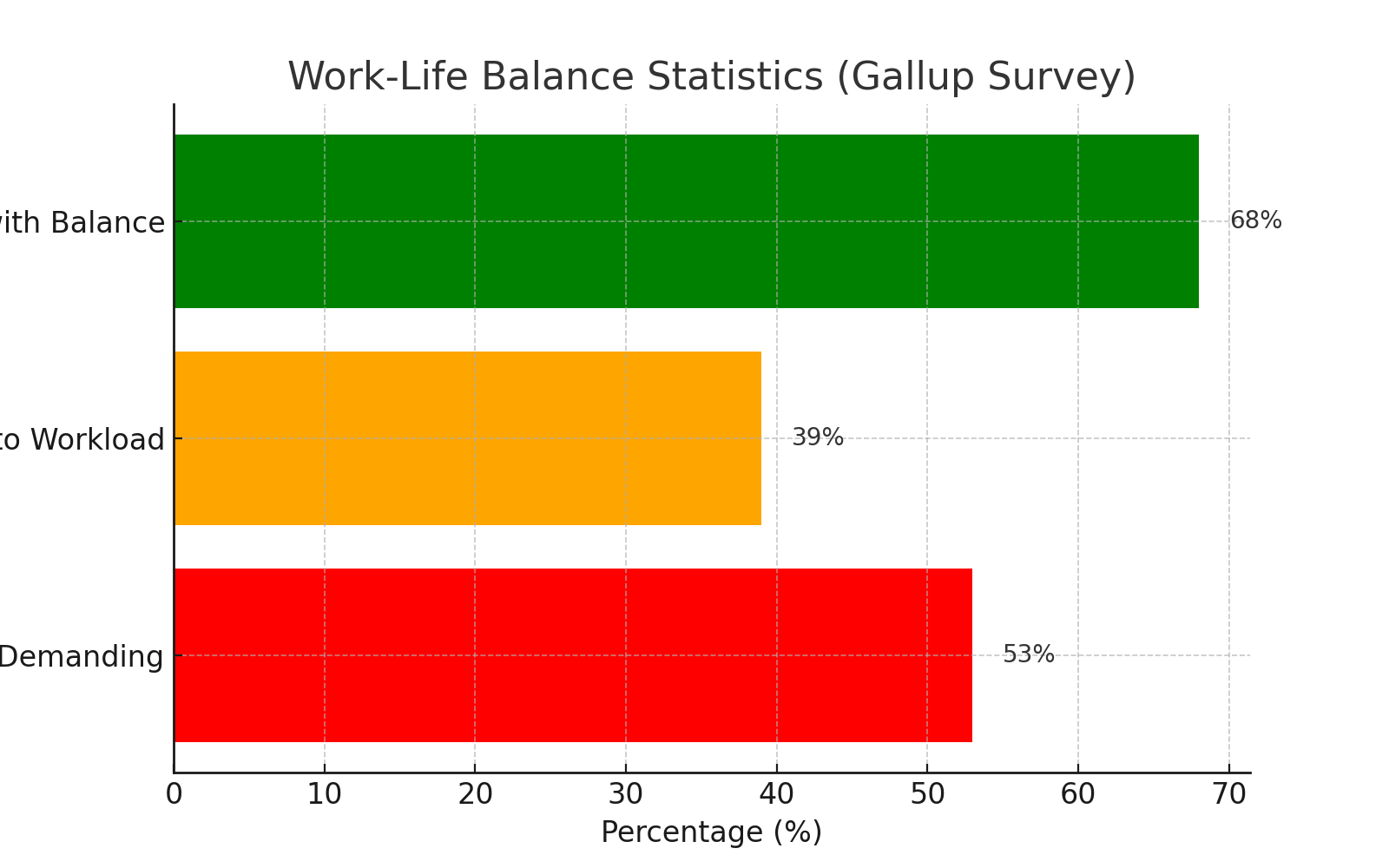
In a fast-paced and highly competitive world, many people struggle to find a balance between their personal lives and work. According to a survey by Harvard Business Review, over 60% of professionals feel that work significantly disrupts their personal lives. This imbalance can lead to stress, burnout, and even physical and mental health issues.
Reduces Stress – A study by the American Psychological Association shows that work-related stress increases the risk of heart disease by up to 40%.
Boosts Productivity – Employees with better work-life balance tend to be 21% more productive than those who work without time boundaries.
Strengthens Social Relationships – Having time for family and friends enhances happiness and emotional well-being.
Use the "Work-Life Segmentation" technique by strictly separating work and personal time. For example, avoid checking work emails after office hours.
Exercise, a balanced diet, and adequate sleep are essential. The National Sleep Foundation recommends 7-9 hours of sleep per night to improve focus and energy levels.
Utilize tools like Trello or Notion to manage tasks and prevent work overload. Statistics show that employees who use digital time management tools work 30% more efficiently.
Many successful CEOs, like Elon Musk, implement time blocking, where specific times are scheduled for different activities, including breaks.
According to a Gallup survey:
53% of workers feel their jobs are too demanding.
39% experience burnout due to excessive workloads.
68% of employees with better work-life balance report higher happiness levels.

Managing work-life balance is not just about working fewer hours but about managing time and energy smartly. By applying the right strategies, we can achieve a healthier, happier, and more productive life.
